Willard Grant Conspiracy - Interview with Robert Fisher
by John Clarkson
published: 17 / 3 / 2006
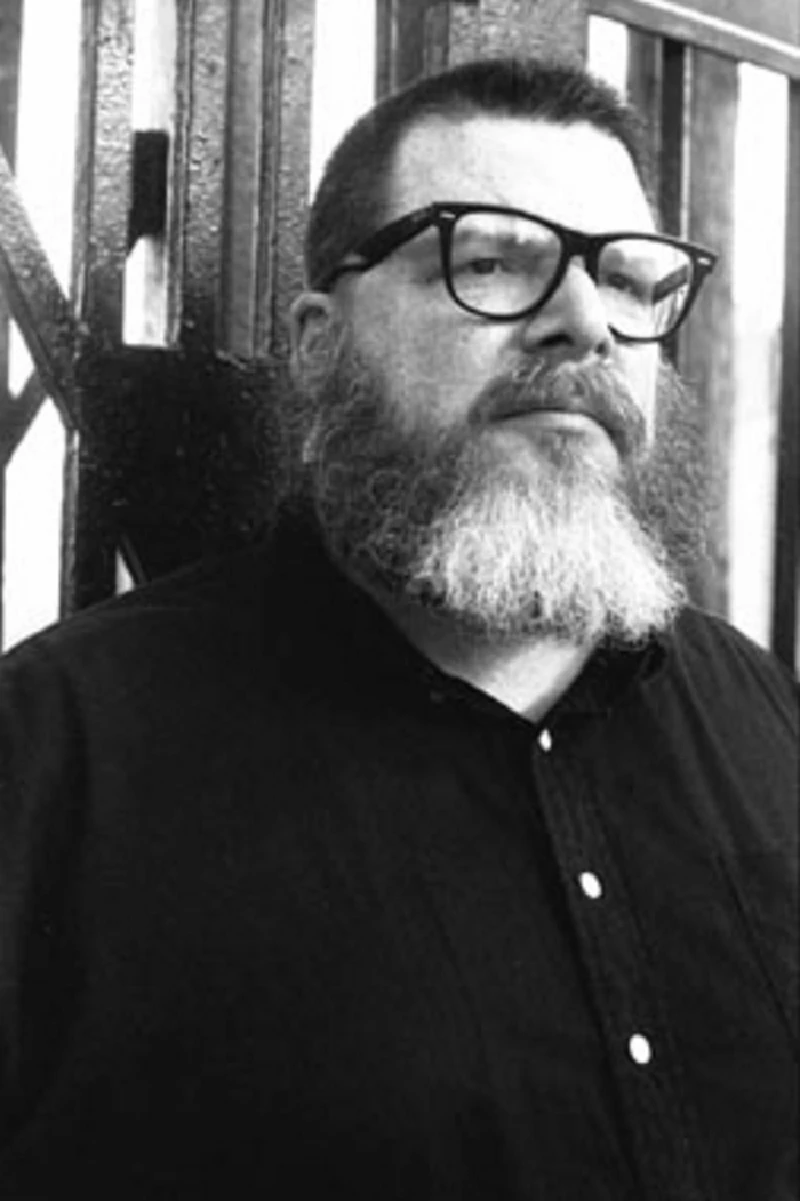
intro
The Willard Grant Conspiracy have just released their sixth studio album 'Let It Roll', which has elements of both psychedelia and punk. Frontman Robert Fisher talks to John Clarkson about its making and recording.
The Willard Grant Conspiracy have always made a principle of trying to record albums that are distinct from one another. While their last studio album, 2003’s ‘Regard the End’, was an excursion into folklore, and merged re-workings of traditional American folk songs with contemporary ballads, their new album and sixth studio record ‘Let It Roll’, which was released on March 27th , finds the band in contrast making a full blown foray into psychedelic and punk rock. The group, which uses roots-based instruments such as mandolins, banjos and strings as well as more modern instrumentation including electric guitars and keyboards, are a loose international musical consortium based around the talents of Californian singer-songwriter Robert Fisher. Fisher formed the Willard Grant Conspiracy with his friend, guitarist Paul Austin, in Boston in late 1995. The pair had played together previously in various other Boston-based projects including the aggressive punk acts Laughing Academy and the Flower Tamers, both of whom had recorded unreleased albums. The Willard Grant Conspiracy's debut album, the starkly atmospheric '3am at Sunday at Fortune Otto's', came out in 1996, and was self-released on Fisher's own small label, Dahlia Records. By the time of its second album, the thrashing, intense 'Flying Low', which was released in 1998, the band had signed to the larger Massachusetts label, Slow River. The group released its third album, the diverse 'Mojave’, which incorporated together heartfelt ballads, punk numbers and folk songs, in 1999 and then its fourth CD, the more upbeat and poppy ‘Everything’s Fine’, in 2000. Austin, tiring of music industry politics and the band's hard touring schedule, left the band in the summer of 2001 and moved to Seattle, where he fronts his latest band, the Transmissionary Six, with his wife Walkabouts drummer,Terri Moeller. When the Willard Grant Conspiracy’s contract with Slow River terminated at about the same time, Fisher, who became the group’s sole permanent member, signed the act in a unique three-prong arrangement to Loose Music in Britain, Glitterhouse Records in the rest of Europe and Kimchee Records in the United States. The Willard Grant Conspiracy at its most recent count had a revolving cast of 34, with personnel coming and going depending upon the needs of the group and also their own commitments. In most recent times the band has consisted for tours of Europe, where it is more popular than in the United States, as well as Fisher (vocals, acoustic guitar), of British member Josh Hillman (violin, viola) ; Dutch musicians Yuko Murata (keyboards and grand piano) and Erik Van Loo (double and electric bass), and American and one-time Laughing Academy recruit Tom King (drums). The band was joined for its most recent European tour in the Spring of last year by Steve Wynn and the Miracle 3 guitarist, Fisher and King’s fellow American ,Jason Victor. It was this abstract of the Willard Grant Conspiracy that Fisher decided to make ‘Let It Roll’ with. The bulk of the album was recorded in the midst of that last European tour at the Metro Studio in Llubljana in Slovenia, where Fisher and one of the previous permutations of the band had also recorded some of ‘Regard the End’. It was then finished off at a variety of locations all over the world including New York, Boston and Holland with a team of what Fisher had dubbed on the album's sleeve “long distance conspirators” , each of whom added their own contributions. These included Steve Wynn (vocals) ; Saint Low’s Mary Lorson (vocals) ; the Empty House Cooperative’s David Michael Curry (viola, guitar) ; the Walkabouts’ Chris Eckman (synthesiser) ; Esther Sprikklemann (vocals) and Zach Macko (vocals). ‘Let it Roll’ includes the elegiac opening song ‘From a Distant Shore’ ; the sweeping epic nine minute psychedelic murder ballad of the title track ; the melodic and hymnal 'Flying Low' ,a savage, spine tingling cover of Bob Dylan’s ‘Ballad of a Thin Man’, and mournful closer 'Lady of the Snowline' With the band about to begin a six week European tour to promote ‘Let It Roll’, Robert Fisher spoke to Pennyblackmusic about its recording. PB : ‘Let It Roll’ seems to be an album that has evolved on the road. Would you say that is true ? RF : Yeah, I think that is true. I guess that you have to be careful when you say evolved on the road because the songs weren’t written on the road and it is not an album about the road. You have everything on ‘Let It Roll’ from really quiet songs to melodic, beautiful things to really aggressive numbers and all on one record. My intention was to try and capture the live dynamic and intensity of the band and to do it in such a way that it reflects a version of our live set, which was why we went back to Slovenia and recorded the majority of the album in the middle of a tour. It seemed to make sense to do so. PB : A lot of the songs on ‘Let it Roll’ have been a part of the Willard Grant Conspiracy’s live sets for the last couple of years. At what point did you decide that you were going to go to Slovenia to record them ? Was the decision made before the tour began to do it midway through the tour ? RF : Yeah, it was. I knew that we were going to be doing the tour. I knew that the opportunity was there to get into the studio. It was a matter of where we were going to go to record the album. There was some thought about doing it maybe in Wales. There might have been an opportunity to do it there, but in the end I decided to do it at the Metro Studio in Slovenia because I knew that we would be four weeks into the tour at that stage. I knew that the band would be really strong at that point, and I also knew the studio having recorded some of ‘Regard the End’ there. It didn’t hurt that the band has friends there. It is on the way too from Italy to Germany, and it is an easy place to be. PB : Slovenia seems to be a country that you have a very special relationship with. RF : It seems that way. We keep going there, although we haven’t been able to play there for the last couple of years. The live club scene has kind of dried up and it is only discos now, which is unfortunate. We have been going there on and off for probably about eight years now. It’s a lovely place, so I would spend time there on any excuse really. PB : The album has been described in its press release on the Loose site as when you were recording it as being like “an extended gig”. Would you agree with that ? RF : Yeah, in some ways. The initial tracks were done that way. We pretty much recorded it in a five day sprint and did it with as much looseness and kept as many live elements as we possibly could. I didn’t want to record it as a live album though. That wasn’t the point. It was to get the chemistry and the dynamics of people who have been playing the music together and to get that on tape. We then did the overdubs at various people’s houses all over the world, but even when we assembled it all together the idea was to keep as much of the looseness and the chemistry and the organic feel of the record as possible. PB : If you wanted to maintain that live feel, did you record the album with all the different factions of the band playing together in the studio, rather than, doing what is usually done in the studio, with each musician laying down his or her parts individually ? RF : That’s absolutely correct. As a matter of fact, over half of the vocals were recorded during that initial recording. The idea was to do it in one take as much as possible and then to get that feel of it. The only real overdubs we did were guitar overdubs. We had a monster guitar player, Jason Victor, in the room with the piano and acoustic guitar and vocal and he couldn’t play as loud as we wanted him to, so we did some guitar overdubs and then in the end we did some vocal overdubs, but beyond that there was not much. PB : The main part of the album was recorded with the band that have played with you when you have toured Europe during the last couple of years. You could have recorded it in America with some of the American members of the Willard Grant Conspiracy ?. Why did you decide to do it with that element of the band ? Was it simply because you have spent more time playing with them over the last couple of years ? RF : It was a combination of things. One was that I knew that that was how we would get this live feel and dynamic. If I did it in the United States, I would have had to assemble people and to rehearse them and it wouldn’t be the same as if the songs had been taken out on the road for two years. The other factor was that Erik and Tom had never been on one of our records. It was also the first for Jason too. Without whining about it everybody makes sacrifices when they are playing on the road. Nobody makes money out there, and so, when somebody works really hard for the music, the kind of operative that I run with is that I am going to go to them and say “Okay, we are going to record. Do you want the first shot ?.” If they say yes, then I am going to go with that. It is the same kind of working when you are touring. You go to the people who have recorded the album first, and go “Do you want to tour ?” and if they can then that is great, but if not you go to the next level. PB : You have already described your new guitarist Jason Victor as a “monster guitarist.” He is a very exciting performer, and seems to be very much a virtuoso guitarist and one who probably plays as he is thinks basically. RF : (Laughs) I think he is probably a little more composed than that . He reminds me a lot of Sean O’Brien, our original guitar player. They both have a structure in their head, so that they know they can get around the song, but they both leave themselves enough freedom to do whatever is in their head. They are both technically adept enough at their instruments enough to put whatever emotion they feel at that moment through their instruments. I think that is true with just about everyone else currently in the band as well. It’s what the band is about really. It is always hard when someone comes into the Willard Grant and they try to learn parts and play a part over and over again. The band doesn’t really operate that way musically. It forces a regiment on something that isn’t really supposed to be there. Jason knows where he is going to go and he also leaves the opportunity to go somewhere else too and that is great. PB : This seems to me to be possibly the most crucial thing about the band. Everyone leaves themselves just open enough so that they can really stretch themselves with each performance. RF : I think that it is one of the really important elements of what we do and we carry that into the studio too. When we make records I try to leave room as well for improvisation in what we are already playing, for the happy accident (Laughs). As a music fan first, which is why I began to play music to begin with, I want to go and see a band where I get to the club and I see them play something like that is the only moment in which that is happening. I don’t want to feel like they have rehearsed it to death. I don’t want to feel like I am seeing the same show that I could see three weeks later in a different town. We all know that there are lots of bands that do it that way, but it has never really been something that has appealed to me. I have always thought of the live performing element as a collaboration. It is a collaborative effort between the music and the musicians and the audience and the night and the weather and the club, all of the things that go into the emotional position of the evening, and if you capture that then you are all the better for it. There is a certain part of the music industry that hates that kind of approach, because they want to market music like McDonald’s and hamburgers. They want people to feel that you are going to get what you get and that may be comforting or something, but in my mind unpredictability is what makes it special, not only for the audience, but for the musicians as well. I have said this many times but every night someone does something that I have never heard them do before and that is amazing. It allows me to sing songs which are 10 or 15 years old over and over. It is part of that which allows me to do that and to find freshness and inventiveness in the doing of it. I wouldn’t want to be in a road band that just plays over and over the same way. It is just not interesting to me. If you listen to all the versions of Dylan’s songs or Springsteen’s, and how they have changed, they have become something which isn’t part of the songwriter anymore. They have their own identity. I hope with us that people understand that what they are getting is honesty and in-the-moment music. PB : The album was finished off, as you have also said, in various people’s houses all over the world. A lot of heavyweight people on the album such as Steve Wynn, Chris Eckman, David Michael Curry and Mary Lorson all make appearances. What contributions did they make ? RF : There is a song on the album called ‘Flying Low’ which Steve and I wrote together over the internet. Steve and Linda Pitmon (Steve Wynn's partner and Miracle 3 drummer-Ed), who were literally rushing out of the door to go on tour, recorded vocals for it and then Mary Lorson recorded vocals for the same song. Neither knew that the others had done it , but then when we got all the tracks together it worked perfectly. It was like they were in the same room recording this thing. Neither one of them had any idea that the others were doing it, and then when they all first heard the final mix none of them could believe it. It was really magical. Dave Curry retired to his cave in Cambridge in Massachusetts and came up with some great, insane, leftfield things for the record that are just remarkable. He not only plays viola, but he also plays guitar on the record, so that is a new thing for him. Chris Eckman lives in Llubljana now and was at the original recording sessions. He told me a couple of months in advance “I don’t want to play piano on the record” which is what he did on ‘Regard the End’, so I said “Okay, that’s cool. What do you want to do ?” and he said “Well, I have got this new kind of synthesizer box that imitates old analog keyboards. I am going to bring that down”, so he brought that in and we had a ton load of fun discovering odd and strange things that we could make out of the thing. It was a really intuitive way to work. I have got this great mental picture of him and Yuko sitting and playing keyboards together in the control room. PB : The album also has a couple of new names to the Willard Grant Conspiracy amongst its credits, Esther Sprikkelman and Zach Macko. RF : Esther sings in Safe Home who are a Dutch band. They play this beautiful kind of vocally harmonic, almost chamber style music. They are really special. Esther’s terrific and sung on 'Lady of the Snowline'. Zach is a singer-songwriter from New York City. My friend Charlie Calello, whom I mixed the record with, works with him and when were mixing the record Zach happened to be in the room and ended up singing on ‘Skeleton’ and ‘Dance with Me’. It was really at the last minute that he ended up on the record. PB : It has been quite interesting looking at the early reviews for ‘Let It Roll’ over here. There was a stage a few years ago when the Willard Grant Conspiracy, which has always used a lot of roots instruments, often found itself labeled in the alt. country bracket. It has been quite interesting this time because I don’t think any reviewer has described it as a country record. Even ‘Uncut’, although they did make it their Americana album of the month, didn’t. It has been described as both a psychedelic record and also as a punk album. What do you think about that ? RF : I am really pleased about it to be honest. I have never considered us a country band. I have always considered what we do as having its roots in American folk and rock. There are so many great country bands. It is almost heresy to call yourself a country band when you’re not one, so I have never done that. People have often come up to me and said “How do you feel about the alt. country tag ?” almost like we meant it or something. Paul Austin and I never sat down and said “Oh look, lots of alt. country bands are getting attention. Let’s go and do something like that.” That was never a part of the origins of the band. It has always just been the music in our head. My roots are firmly in folk and rock, and whether that is the rock scene from the 60’s or the punk scene they are firmly planted there. Paul’s roots are more in the later punk stuff and late 70’s rock because he is younger than I am. The music always comes from the direct result of the influences of the people that are playing it. I think there are psychedelic elements and there are punk elements on the new album. There is garage rock, there is folk and there is even some twang in there as well, especially on ‘Lady of the Snowline’. ‘Lady of the Snowline’ could be played by someone like Steve Earle. PB : It seems to reveal a side to the band that many fans, especially those who haven’t heard the early albums such as ‘Flying Low’ and ‘Mojave’, which are hard to get a hold of now, won't have seen before. RF : That’s true. If you came to the band with ‘Regard to the End’ or maybe even ‘Everything’s Fine’, although that album has songs like ‘Southend of a Northbound Train’ on it and pop songs on as well, you won’t have heard that side of the band. Certainly if you listen to ‘Mojave’ there are clues though, and if you have seen the band live you will know that we have always been capable of the sort of rock stuff. PB : The title track is the only song upon which you have printed the lyrics on the sleeve . You’ve got into the habit on recent albums with putting all the lyrics on the sleeve. Why did you decide to leave the majority off the lyrics off ‘Let It Roll’ ? RF : We went back and forth about this. There was a discussion, not only in the band, but in my head. I have never really liked putting the lyrics on, as I have always felt that my pronunciation is strong enough that people will be able to figure out what I am saying. I also feel, that when you print the lyrics, you can end up with this kind of disconnection where you sit and read them and then listen to the music as background. I had been talked into putting the lyrics on by friends for whom English was not their first language. I understand that, especially if English is not your first language, it is nice to be able to decipher what exactly the lyrics are, but in this case I felt the power in this record had to come from people reacting to it without any kind of wall between them and it, and so I went back to not putting the lyrics in. We are, however, going to put all the lyrics up on our website, so that if people really want to get them they can and go do that. PB : ‘Distant Shore’, the first track, takes its inspiration from a letter a soldier, Major Sullivan Ballou, wrote to his family a couple of days before he was killed at the Battle of Bull Run in the American Civil War. Where did you come across that letter ? RF : A really good friend of mine is a something of Civil War historian. He has written an as-yet-unpublished novel about a real incident that took place at that time. He has been working on the book for close to 10 years and we were talking one day and he brought this letter to light. I had never heard of it before and then more recently there was this huge documentary on the Civil War for public broadcasting in America. It was quite a beautiful series, and the letter was there again. It has stuck in my head ever since because it was remarkably pristine piece of work about this guy who basically knows that he is going to die and who is writing to his family, not only to let them start the initial grieving process, but also as a defence of the reason why he was there to begin with. A couple of years ago when America’s involvement in Afghanistan and Iraq was fresh there was this article in ‘The Wall Street Journal’ of all places-and I still can’t quite figure out why it was there- in which there was this article with the headline ‘Why Are There No Protest Songs ?’ It just seemed like a really funny thing for the Wall Street Journal to publish, but it was a really interesting article. The article suggested that protest songs had started to veer into specific incident, time and place and had become very narrow. They didn’t last very long because they were about too specific a thing , but it also made the point that there were still people writing protest songs, like Steve Earle, which were different because they were about a bigger whole. They had more of a humanist approach. They were less about a specific incident or the politics. That started to make me think and I decided that that was pretty accurate. If you think about all the protest songs that survived from the 60’s like Dylan’s ‘Masters of War’, it is because they are more universal. I decided I wanted to do something and say something about being in the wrong place for the wrong reasons in a war, but at the same time I didn’t want to make it political because it is not really the role I play as a songwriter and this letter came into my head as the perfect device for writing a song of this kind. The lyrics in the song are not directly from the letter but are inspired by it and I hope that it works. PB : There is also a cover of Bob Dylan’s ‘Ballad of the Thin Man’ on ‘Let It Roll.’ It is the very first cover you have done of a song on an album by a modern artist.. You recorded it originally for an ‘Uncut’ compilation which came out last year, and which reworked tracks from ‘Highway 61 Revisited.’ Why did you decide to put that on ? RF : The band really wanted it on there, and I remixed it from the ‘Uncut’ version so that it sounded more like the record as a whole. We recorded it at the same time that we recorded the rest of the record. It was an important chemical element of the live stage show. I wasn’t sure about putting it out on the record until I heard it in the record, but then I realized that it kind of balances out the record because if you were to think of the record as not a CD, but as a vinyl piece you have got ‘Distant Shore’ and ‘Let It Roll’ at the top of the record and at the bottom end you have got ‘Thin Man’ and “Lady of the Snowline.’ They bookend the record in a really obvious way, and so it made sense musically when I put it together with the rest of the record for it musically to be there. Not everybody reacted well to that ‘Uncut’ set list, but I think that most of that is purist stuff and the sort of thing purists should get their head out of their ass anyway about. We played the song and I think we found something and highlighted a different element in it. If you listen to some of the versions of that song that Dylan has played there is a nightmarish quality that he hints at in those versions and I tried to push that a little bit. The sound of the band is great. I am really proud of that. We’re certainly not Dylan and his band, but I don’t think we hurt the song in anyway whatsoever. ‘Ballad of a Thin Man’ was a really kinetic live thing that we played about 20 times before we recorded it. I felt that with the goal of the record being to capture the dynamic element of the band that song perhaps more than any other song on the record captures that dynamic. It’s the one song that doesn’t have any overdubs. There are none on it, so from that point of view it also fits the life of the record. The other reason we put it on the CD is that not everybody in the world reads ‘Uncut’ and certainly not all the people that listen to our music have bought that CD. ‘Uncut’ is not so readily available in America, and in Europe there are people in places like Italy who have never seen it as well. PB : Why did you decide to call it ‘Let It Roll ?’ Was it because you wanted to pick up on that fluid quality that you have with this album and just to let it roll basically (Laughs)? RF : The song itself is an epic (Laughs), and to not acknowledge that it is on the record would be like ignoring the elephant in the room in some ways (Laughs). It is also because that is what we do. We let it roll and go for it. That is the spirit that imbues the band. It seemed like it was really appropriate. It seemed like it captured the spirit of the record and the band in ways that other titles wouldn’t be able to. PB : You are going to be releasing your first DVD through Glitterhouse later in the year. RF : It is a work in progress. I don’t know exactly what it is going on it yet. I have seen some of the footage, but I don’t know all of it. There are actually two different concert footages going on it, one that was filmed for German television of a show we did there, and one of our set at the Orange Blossom Special last year. I haven’t seen it all together yet but I hope that it is all good because I have a hard time with that particular concept of documenting a live performance on film or video. It bothers me. It always has. I don’t particularly like the idea of it myself, although I see why people like to have these things. For me it is a challenge. PB : What is your objection to it in particular ? Is it because of that concept of every single night you get a different element of the WGC, and if you put one down on film that is the definition that people are going to see ? They perhaps will not see another definition. RF : That’s one element, the most important one. The other element is that I don’t think unless you spend a lot of money doing it, and even if you spend a lot of money it doesn’t work all the time, that you can the capture the energy of the room. We talked earlier about how a live performance is a collaboration between not only the music itself but the musicians and the crowd. It is all those elements that go into a live performance and your perception of a performance as an audience member. There is no way that a film can capture that. I think that to a certain extent the nature of putting this stuff on film or video is archival. For my own purposes I don’t really like have tons of recordings of us live. It’s not that interesting to me. There is a magic element that is missing and that is not there, so when I see that stuff I am really over conscious about what is not there as opposed to what is there. I will say again that I do understand why something like this is something that people are interested in, but for me I think that it is going to be a challenge for me to really like it. The group that are putting it together are a collage of film artists and I have told them to get very creative, even to the extent with the OBS footage of just going for little snippets of live footage and then collaging it with ilm of the rest of the stuff that was going on that day. I want them to do something different with it that isn’t static live footage. The other footage was done in a club for German television and there is a certain energy to it so that is okay, but I would like the OBS footage to be something more than just a live gig. PB : You’re about to tour Europe. You’re going out on the road in April and May. Who will be going out with you this time ? RF : It will be the same band who appeared on the album. PB : And finally what do you hope to do after that ? RF : The idea is this tour is it is going to be pretty much a major city tour, or as much of a major city tour can be and then after that I am going to open for Steve Wynn and the Miracle 3 for about two and a half weeks as a solo act. The Willard Grant Conspiracy will then play the Orange Blossom Special again at the end of May. After that I think we will see if there are any festival opportunities for the summer time. We have this problem where I don’t think people see us as a festival band. They think that we are this weird little acoustic band that can not do a big stage. I have worked really hard over the last couple of years to prove that wrong. For a band like us that doesn’t get a big kind of hype push and are not the coolest band on the planet, it can be quite difficult for us to get festival spots. We’re not going even to attempt to be the next big thing. We’re not going to get any money spent on the video, although there is a really lovely video that we have just done for ‘Distant Shore.’ Festivals are a way though for us to grow an audience. When we get in front of big groups of people, sure there are some people who don’t like us, but we usually win people over. I think festivals are maybe a way for us to gain some audience share that we maybe don’t have. There are very few ways for a band of our size and nature to gain an audience, so I have been trying to push for that. Maybe then in the Fall we can come back and perhaps do some of the secondary markets and the non-big towns as well. We can perhaps see how the record is doing and perhaps come back and do that. I always feel with the initial tour and the release of the record that we miss people. They don’t know it is there, so hopefully we will be able to tour in the Fall and the Autumn and catch up with some of people who came to the record over the summertime as well. . PB : Thank you for your time.
Band Links:-
https://en-gb.facebook.com/WillardGrantConspiracy/https://twitter.com/willardgrant
https://www.willardgrantconspiracy.com/
https://en.wikipedia.org/wiki/Willard_Grant_Conspiracy
Picture Gallery:-
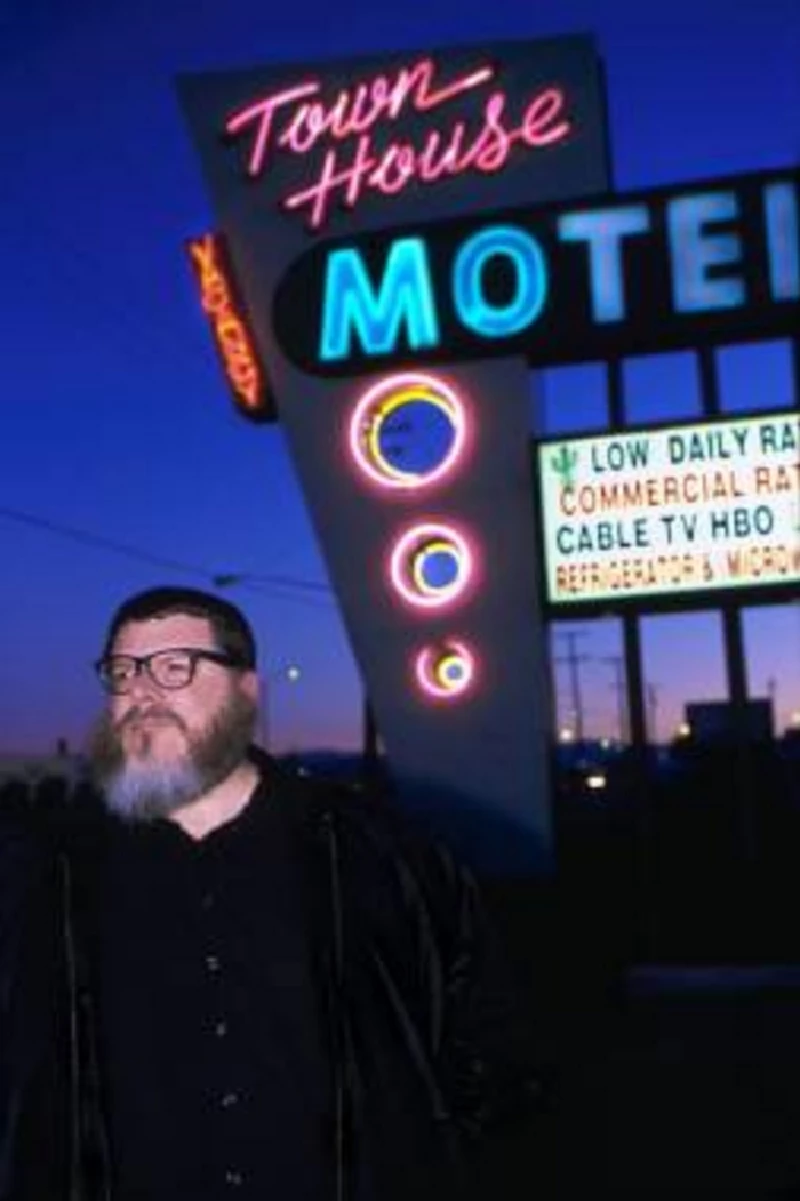
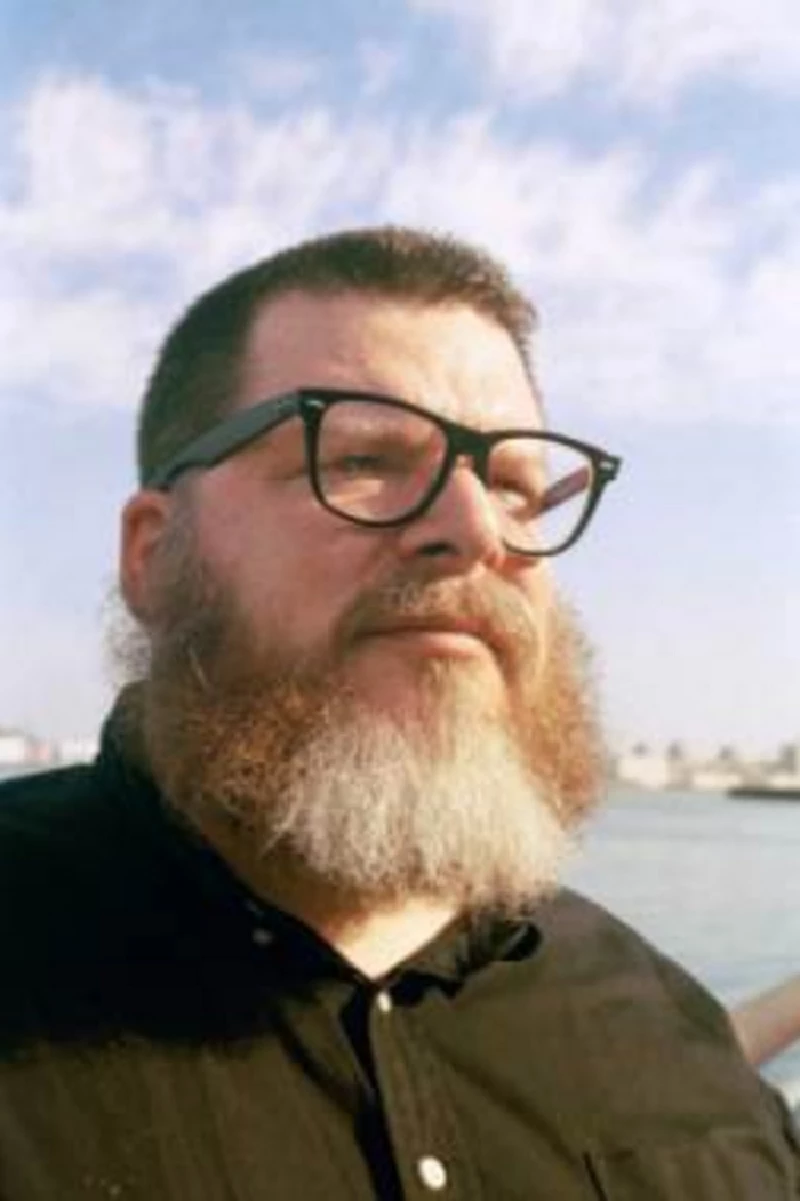
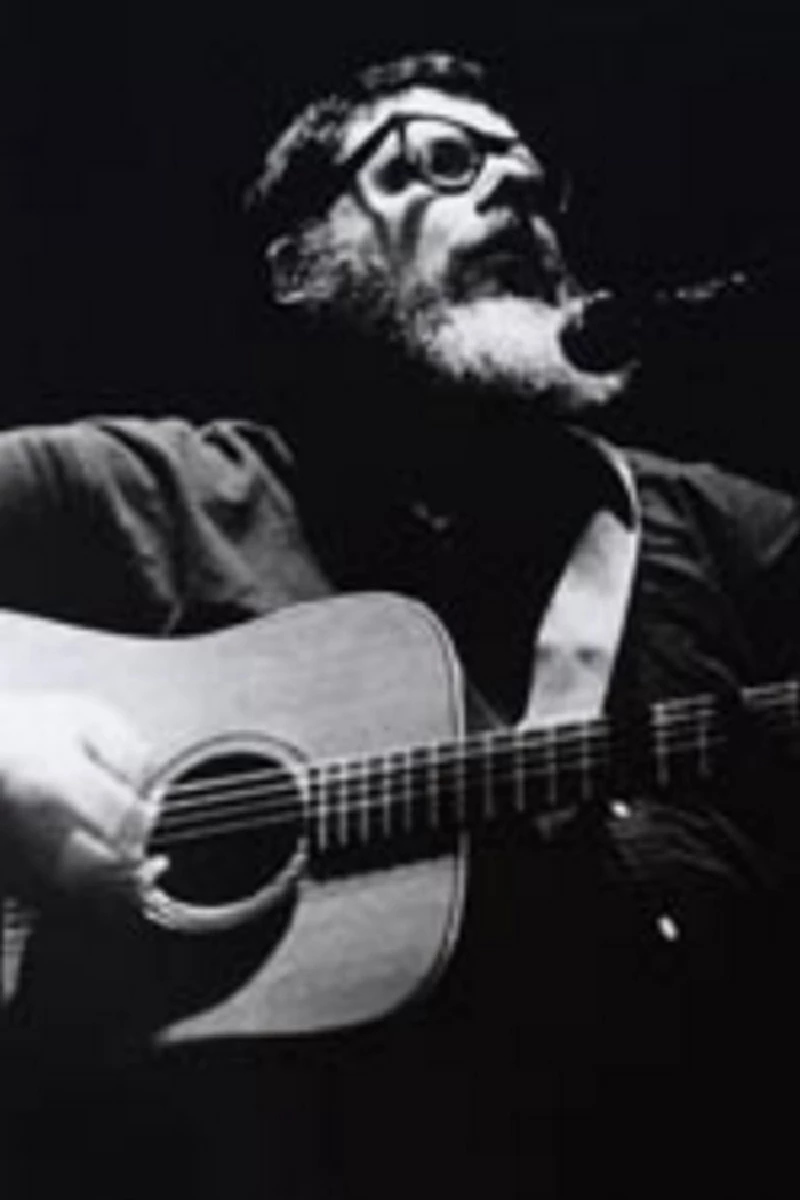
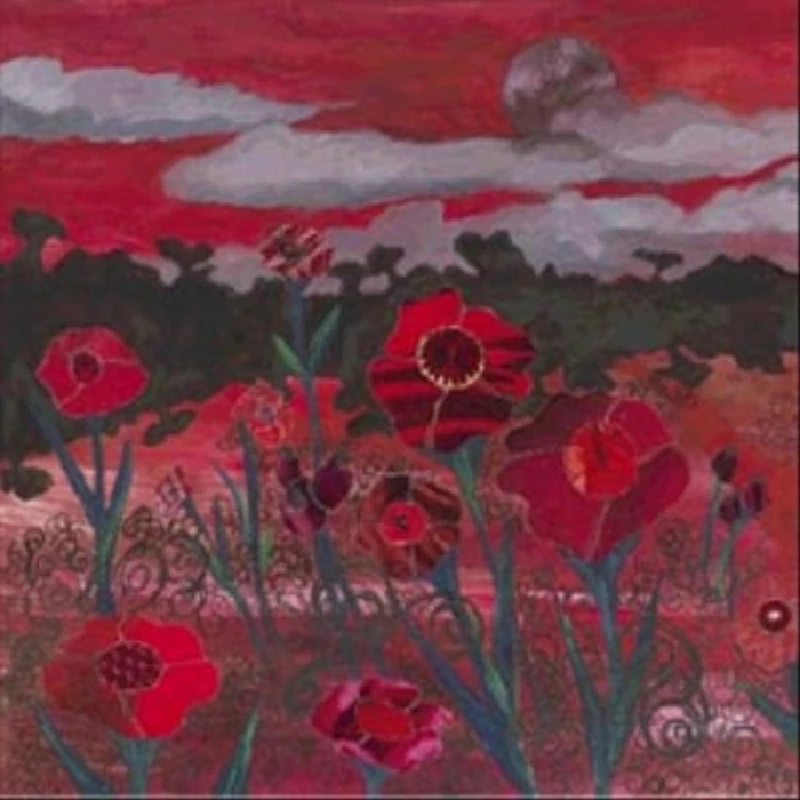
interviews |
|
Interview with David Michael Curry (2019) |
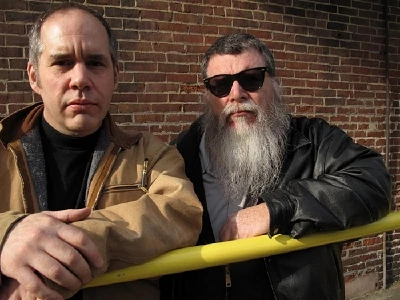
|
| Willard Grant Conspiracy viola player David Michael Curry talks to John Clarkson about its tenth and final album 'Untethered' which was completed after the death of its front man Robert Fisher during its recording. |
| Interview (2013) |
| Interview (2009) |
| Interview (2008) |
| Interview with Robert Fisher (2003) |
| Interview Part 2 (2000) |
| Robert Fisher Interview (2000) |
| Interview Part 1 (2000) |
live reviews |
|
Garage, London, 18/9/2009 |
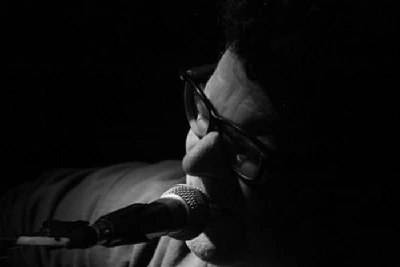
|
| In an evening fraught with difficulties and distractions, Ben Howarth at the Garage in London watches Robert Fisher's Willard Grant Conspiracy, against the odds and a heavily reduced stage time, play a riveting and forceful set |
| Majestic Theater, Detroit, 24/9/2009 |
| Bloomsbury Theatre, London, 18/5/2008 |
| Luminaire, London, 9/11/2007 |
| Dingwalls,, London, 9/5/2006 |
| Edinburgh Village, 11/7/2002 |
features |
|
Ten Songs That Made Me Love... (2017) |
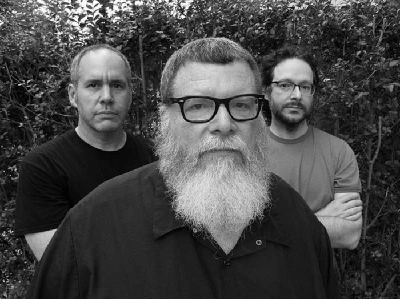
|
| In 'Ten Songs That Made Me Love...' John Clarkson pays tribute to Robert Fisher from the Willard Grant Conspiracy, who died at the age of 59 in February and who we interviewed many times and headlined our Bands Nights on four occasions |
reviews |
|
Untethered (2019) |
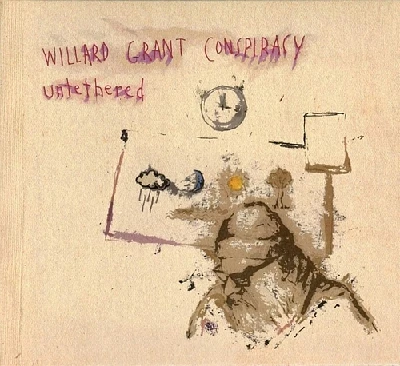
|
| Evocative tenth album from Willard Grant Conspiracy which features the last recordings of its front man Robert Fisher who died in early 2017 |
| Paper Covers Stone (2009) |
| Regard The End (2003) |
| Everything's Fine (2001) |
| Mojave (2001) |
most viewed articles
current edition
Carl Ewens - David Bowie 1964 to 1982 On Track: Every Album, Every SongArmory Show - Interview with Richard Jobson
John McKay - Interview
Colin Blunstone - Thalia Hall, Chicago, 16/7/2025
Billie Eilish - O2 Arena, London, 10/7/2025
Bathers - Photoscapes 1
Visor Fest - Valencia, Spain, 26/9/2025...27/9/2025
Loft - Interview
Sir Tim Rice - Interview
Robert Forster - Interview
previous editions
Manic Street Preachers - (Gig of a Lifetime) Millennium Stadium, Cardiff, December 1999Heavenly - P.U.N.K. Girl EP
Beautiful South - Ten Songs That Made Me Love...
Oasis - Oasis, Earl's Court, London, 1995
Peter Perrett - In Dreams Begin Responsibilities Interview Part One
Boomtown Rats - Ten Songs That Made Me Love....
Coldplay - Wembley Arena. London, 16/8/2022
Prolapse - Interview
Pixies - Ten Songs That Made Me Love...
Trudie Myerscough-Harris - Interview
most viewed reviews
current edition
Davey Woodward - Mumbo in the JumboSick Man of Europe - The Sick Man of Europe
Lucy Spraggan - Other Sides of the Moon
Amy Macdonald - Is This What You've Been Waiting For?
Phew, Erika Kobayashi,, Dieter Moebius - Radium Girls
Bush - I Beat Loneliness
Suzanne Vega - Flying With Angels
Alice Cooper - The Revenge of Alice Cooper
Cynthia Erivo - I Forgive You
Blueboy - 2
related articles |
|
: Interview (2023 |
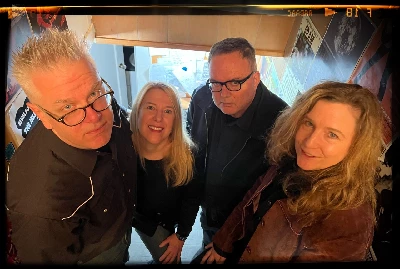
|
| In the first part of a two part interview, both parts which we are running consecutively, guitarist Paul Austin talks to John Clarkson about the reformation of his band The Transmissionary Six after a decade-long absence, and their new album, 'Often Sometimes Rarely Never'. |
| : Interview (2023) |
| Willard Grant Conspiracy/Big Hogg: Feature (2015) |
| Tom Bridgewater: Interview (2015) |
Pennyblackmusic Regular Contributors
Adrian Janes
Amanda J. Window
Andrew Twambley
Anthony Dhanendran
Benjamin Howarth
Cila Warncke
Daniel Cressey
Darren Aston
Dastardly
Dave Goodwin
Denzil Watson
Dominic B. Simpson
Eoghan Lyng
Fiona Hutchings
Harry Sherriff
Helen Tipping
Jamie Rowland
John Clarkson
Julie Cruickshank
Kimberly Bright
Lisa Torem
Maarten Schiethart